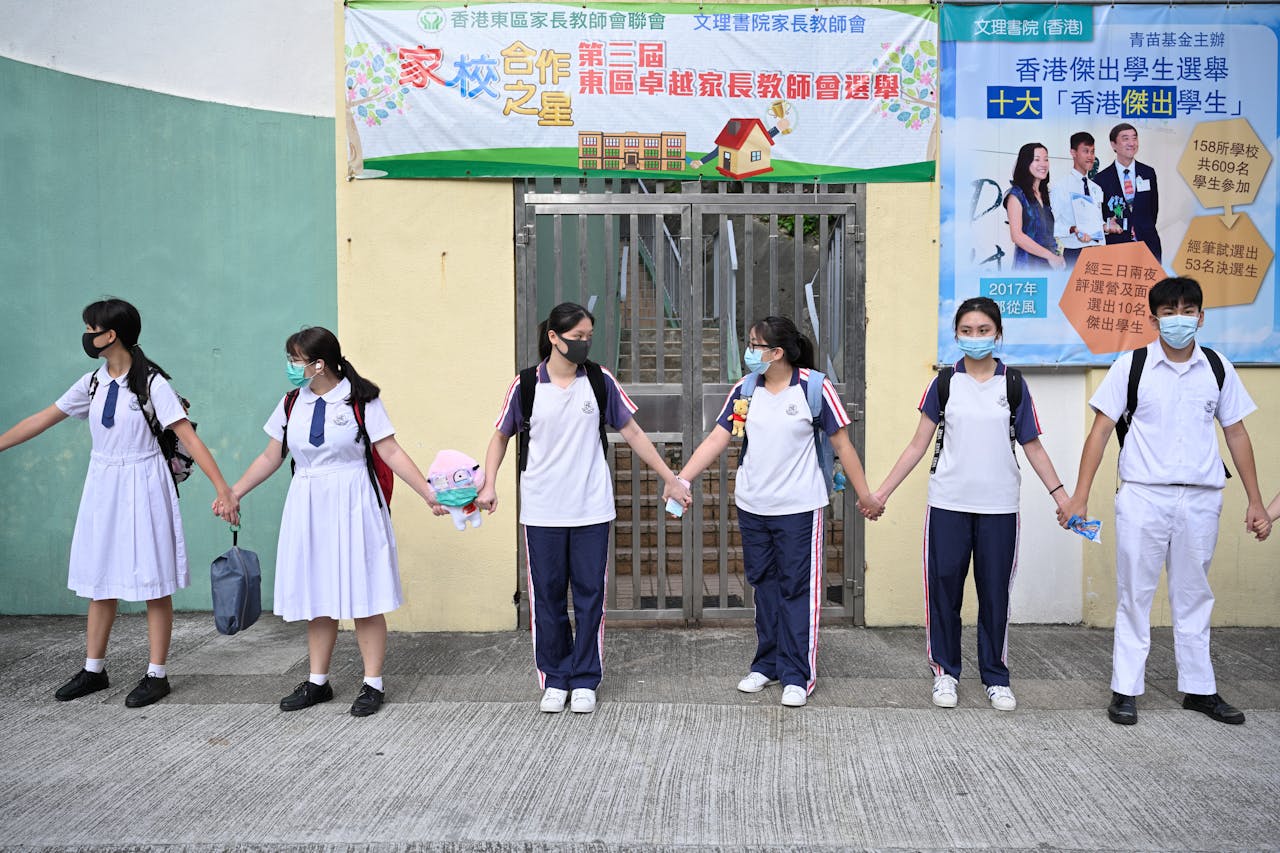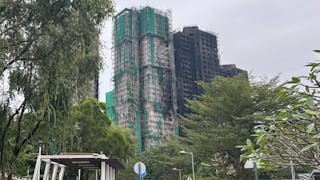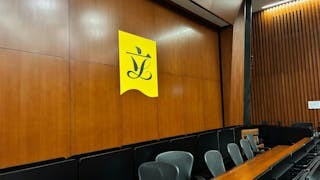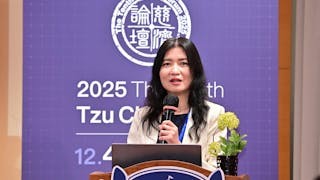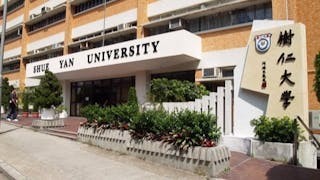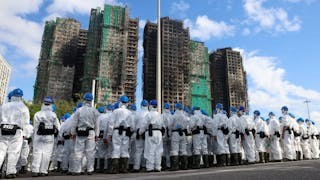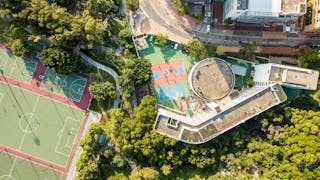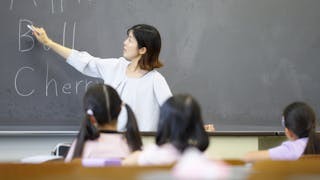仔細閱讀由原來通識科演變而來的新學科公民與社會發展的新課程評估指引,可以看出愛國主義的內容已經注入了新科目,預料香港教師和學生的愛國情懷未來幾年將趨增。
不討論當下敏感政治議題
6月2日,教育局公布了《公民與社會發展科課程和評估指引》。指引的目標是「讓學生透過學習香港、國家及當代世界的議題,建立堅實及廣闊的知識基礎,並培養慎思明辨、理性分析和解難的能力,同時,認同國民身分和發展國際視野」。這一目標與通識科原來的目標有所不同,原來的目標既要「尊重多元文化的觀點」,又要培養學生「批判思考能力和創造力」。原來的通識教育強調學生的「批判性思考」能力,而新的公民與社會發展科則強調學生要「慎思明辨」,而不只是採取「批判性」的態度。
新的公民與社會發展科與通識科的不同之處還包括以下三方面:一、公民與社會發展科培養學生「讓學生通過學習香港、國家和當代世界的議題,建立堅實和廣闊的知識基礎。」而原來的通識科鼓勵學生多角度思考「當下的文化、社會、經濟、政治和技術等新話題」。顯然,新的公民和社會發展科不鼓勵學生探討正在演變的政治議題,而原來的通識科允許教師和學生有相當大的自由度來探索當前正在發展的議題,包括政治和有爭議的問題。新的公民和社會發展科目似乎要使課程去政治化,最大程度減少教師和學生涉及正在發展的,以及政治上有爭議的敏感話題。
其次,公民與社會發展科目旨在培養學生「理解問題的複雜性、決策過程的挑戰,以便他們能夠進行理性和合法的分析,並學會應對相互衝突的價值觀」。原來的通識科沒有強調學生「理解問題的複雜性和決策過程的挑戰」;新的公民與社會發展科明顯鼓勵教師和學生在處理體現文化和政治價值觀衝突的政府決策過程和問題時,更加「客觀」和「全面」。 如果說通識教育是偏向西方自由主義的縮影,那麼,公民與社會發展科則包含更多的非西方思想和中國視角,包括欣賞中國與西方文明和價值觀的不同。
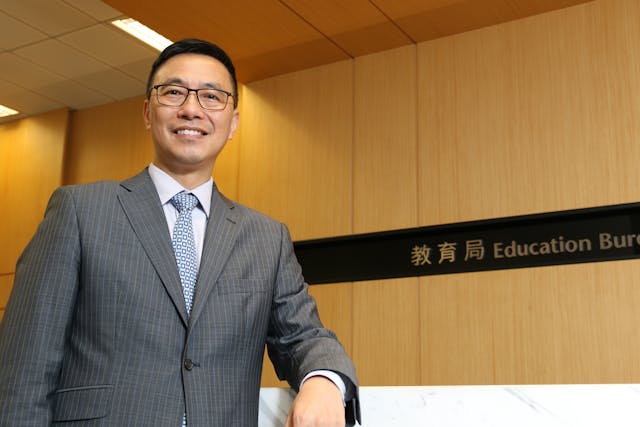
再者,原來的通識科儘管沒有強調中國文化和國民身份的元素,但新的公民與社會發展科明確目的在「培養學生成為有識見、負責任的公民,認同國民身份,並具備世界視野,建立正面價值觀和積極的人生態度」。顯然,香港的教育改革者認為,只是培養學生「批判性思考」而沒有領會中國文化傳統和國民身份的通識科,是一種相對「不愛國」的課程設計,必須在新課程中予以糾正。
新科必須強調中港密切關係
教育局局長楊潤雄6月2日表示,政府將向每間公營及直資學校發放30萬元一筆過津貼。為相關的教學和學習活動提供必要的支持。這些活動將包括購買教學設備和設施、組織校本、聯校和跨學科活動。
各間中學正在重新部署現有的教學資源和人手,來安排新的公民和社會發展科。此外,政府對中學的補貼包括電子學習設施和活動、參考書和到內地的交流計劃。但是,學校不能藉着要求政府多次津貼同一項目來重覆使用有關津貼。
從新課程的評估指引來看,加強了愛國主義的成分。 一國兩制下的香港,需要強調香港自古以來就是中國的領土,主權歸中國所有。對於《港區國安法》與法治與人權之間的平衡問題,指引強調,《港區國安法》「不影響香港的法治和香港人依法享有的權利」。總之,內地與香港密不可分的關係,中國對香港以至全球的重要貢獻,都必須在公民與社會發展科中體現出來。
教育局已向有關出版商發出指引,讓教科書和參考書的作者考慮如何撰寫或提出合適的閱讀材料。預計中四和中五課程教材將於2022年出版,中學將在2022-2023學年使用這些教材。
就在6月2日這一天,中國教育部發表了《粵港澳大灣區語言生活狀況報告》。報告主張香港「應該」或「宜將」普通話教育作為政策適度融入考評體系。隨着香港和澳門被納入大灣區計劃,普通話的普及和融入香港的考試體系只是時間問題。
整體而言,新的公民及社會發展科取代了原來的通識科,是特區政府開始向香港青少年灌輸愛國主義教育的重大舉措。這種愛國主義在最近公布的《公民與社會發展科課程和評估指引》已明確表達。隨着普通話預期會加速融入香港的考評體系,香港的教育制度和課程正在快速改革,以增加愛國主義元素。到2047年,大多數香港人可能會比目前的一代在政治上更加愛國。
Patriotism and the New Subject of Citizenship and Social Development in Hong Kong
A careful reading of the new curriculum guideline of a new subject, namely Citizenship and Social Development, which was derived and evolved from the old Liberal Studies, shows that Chinese patriotism has already been injected into its content and that Hong Kong teachers and students are increasingly expected to increase their patriotic sentiment in the coming years.
On June 2, the Education Department Bureau (EDB) issued the curriculum and assessment guideline for the new subject of Citizenship and Social Development. The objective of the guideline is to stress “the respect of multicultural perspectives and views so that students can think carefully and distinguish matters clearly, engage in thinking rationally, reflectively and independently” (Wen Wei Po, June 3, 2021, p. A6). This objective is different in emphasis from the old objective of the Liberal Studies subject, which originally aimed at not only “respecting multicultural perspectives and views” but also training students to “become critical, reflective and independent thinking persons.” While the old Liberal Studies emphasized the “critical” ability of students, the newly reformed Citizenship and Social Development lay the emphasis on the need for students to think carefully” and “distinguish matters clearly” without just adopting a “critical” attitude.
Other differences between the new subject, Citizenship and Social Development, and the old subject of Liberal Studies embrace three aspects. First, while the new subject of Citizenship and Social Development trains students “to adopt multiple perspectives and angles to ponder contemporary topics “which are already developed in a mature way,” the old Liberal Studies encouraged students to adopt multiple angles to think about “currently emergent topics such as culture, society, economics politics and technology.” Obviously, the new Citizenship and Social Development does not encourage students to deal with those current issues that are evolving politically whereas the old Liberal Studies subject allowed considerable discretion to teacher and students to explore presently developing topics, including political and controversial issues. The new Citizenship and Social Development subject appears to depoliticize the curriculum, minimizing the possibility of teachers and students to cover ongoing and politically controversial and sensitive topics.
Second, the Citizenship and Social Development subject aims at training students to “comprehend the complexity of topics, the challenges of decision-making processes so that they can come up with rational and legal analyses and learn to cope with mutually conflicting values.” The old Liberal Studies curriculum did not stress the students to “comprehend the complexity of topics and the challenges of decision-making processes.” Clearly, the new Citizenship and Social Development subject encourages both teachers and students to be more “objective” and “holistic” in coping with the governmental decision-making processes and issues that illustrate the clashes of cultural and political values. If Liberal Studies epitomizes a bias in favor of Western liberalism, then Citizenship and Social Development embraces more non-Western ideas and the Chinese perspectives, including an appreciation of the clashes of Chinese and Western civilizations and values.
Third, while the old Liberal Studies did not emphasize the element of Chinese culture and identity, the new Citizenship and Social Development subject explicitly aims at educating students to “simultaneously appreciate, appreciate and accept different cultures and viewpoints and to deepen their individual understanding and identification with the Chinese cultural tradition, Chinese nationality and Chinese national identity.” Clearly, the education reformers in Hong Kong have believed that the Liberal Studies subject, which just trained students to be “critical” without appreciating the Chinese cultural tradition and national identity, was a relatively “unpatriotic” curriculum design that must be rectified in the new curriculum.
The Secretary for Education, Kevin Yeung, said on June 2 that the government would give a subsidy of HK$900,000 to each public and directly subsidized secondary school to provide the necessary logistical support for the related pedagogical and learning activities. Such activities would include ten hours of inspection visits to the mainland, the buying of teaching equipment and facilities, the organization of school-based, joint schools and cross-subject activities.
Secondary schools are dealing with the new subject of Citizenship and Social Development by redeploying the existing teaching resources and manpower. Moreover, the governmental subsidies to secondary schools include e-learning facilities and activities, the reference books, and the exchange programs to the mainland. However, the utilization of subsidies cannot be overlapped by asking for the government to subsidize the same project items more than once.
Judging from the guideline on the new curriculum, the ingredient of Chinese patriotism has been enhanced. The topic of Hong Kong under “one country, two systems” needs to stress that Hong Kong from ancient time has remained a Chinese territory, with its sovereignty and administration being possessed by China. For the topic on the balance between the national security law on the one hand and the rule of law and human rights on the other, the guideline says that the national security law “has no impact on Hong Kong’s rule of law and the rights enjoyed by the Hong Kong residents in accordance with the law.” On the topic of the relations between the executive, legislature and judiciary, the guideline stipulates that the three branches have their own duties and positions and that they are complimentary to each other. On the topic of interdependence in the contemporary world, the guideline says that China’s contributions to the anti-Covid19 efforts and its production of vaccines must be examined. Finally, on the topic of the Chinese nation after the open-door policy, the mutually economically beneficial relations of the Closer Economic Partnership Arrangement must be supplemented. In short, the inseparable mainland relations with Hong Kong, and the important contributions of China to both Hong Kong and the world must be taught and emphasized in the new subject of Citizenship and Social Development.
The EDB has already sent its guideline to the publishers concerned so that the writers of textbooks and reference books will take into consideration how to write up or come up with appropriate reading materials. It is expected that the textbooks for form four and form five will be published in 2022 so that secondary schools will use these materials in the academic year of 2022-2023.
In response to the new guideline of Citizenship and Social Development, the vice-chairman of the Federation of Education Workers Mr. Tang Fei remarked that while Liberal Studies in the past lacked a holistic approach to educating students on mainland China, the new subject can adopt a more comprehensive approach by connecting the “one country, two systems” with the Basic Law, the national development and the relationships between the Chinese nation and the Hong Kong Special Administrative Region (HKSAR). Tang believed that the new subject is “more systematic” and tackling “the whole journey of learning process logically.” He suggested that the government should consider either adjusting the annual subsidy to each secondary school upward after one year of implementation or institutionalizing such subsidy in the future.
The vice-chairman of the Hong Kong Liberal Studies Education Society, Lee Wai-hung, said that the Liberal Studies subject which emphasized too much on the “critical” attitude of students created lots of problems (Wen Wei Po, June 3, 2021, p. A6). Nevertheless, the new subject can strengthen the elements of “law, emotion and reasons.” In this way, the new curriculum can teach students on the legal foundation appropriately to avoid not only anyone spreading “the distorted theory of’ ‘violating the law to achieve justice,’” but also an arbitrary way of interpretating the “one country, two systems.” Lee added that the new subject’s guideline correctly reminds teachers of the need to carefully select and use the Internet sources and media materials. This would avoid some teachers to utilize materials that “distorted the facts.” He felt that the mainland visits would be important to the local students, who in the past had to be persuaded hard by school authorities to visit the mainland to widen their horizon and deepen their understanding of the motherland.
Hence, the patriotic education elites in the HKSAR are supportive of the new subject’s emphases and remain critical of the Liberal Studies subject’s “distorted” curriculum design, pedagogy and objectives.
On the same day of June 2, China’s Ministry of Education published a report on the life and development of language in the Greater Bay Area (GBA). The report advocates that Hong Kong’s education system should integrate Putonghua into the examination assessment system. It says that the people of Hong Kong should be knowledgeable about simplified Chinese characters so that more Hong Kong people would be able to “acquire the train ticket to the world and the mainland’s fast economic train.” As the HKSAR and Macau are incorporated into the Chinese national plan of integration with the GBA, the popularization of Putonghua and its integration into the Hong Kong examination system are only a matter of time.
Overall, the replacement of the old Liberal Studies subject with the new Citizenship and Social Development was a significant move by the HKSAR government to start inculcating Chinese patriotism into the psyche of the Hong Kong youth. This Chinese patriotism is made explicit in the most recently published guideline of Citizenship and Social Development. Together with the anticipated and accelerated integration of Putonghua into the Hong Kong examination system, the education system and curriculum of Hong Kong have been undergoing rapid reforms to strengthen the element of Chinese patriotism. By 2047, most people of Hong Kong will likely become far more politically patriotic than the current generation.
原刊於澳門新聞通訊社(MNA)網站,本社獲作者授權轉載。



